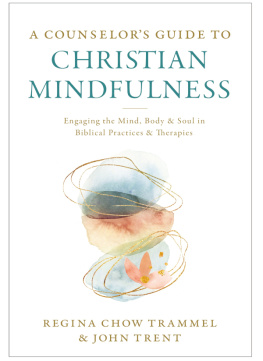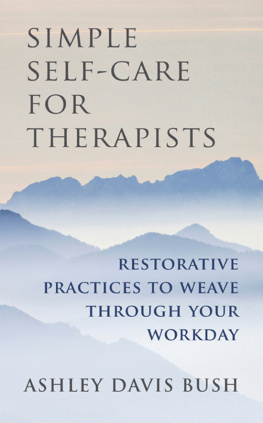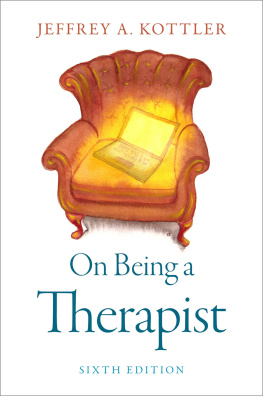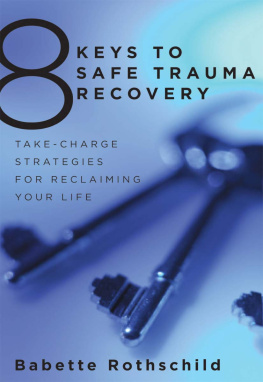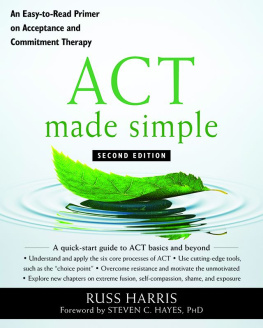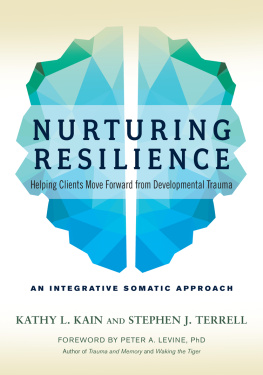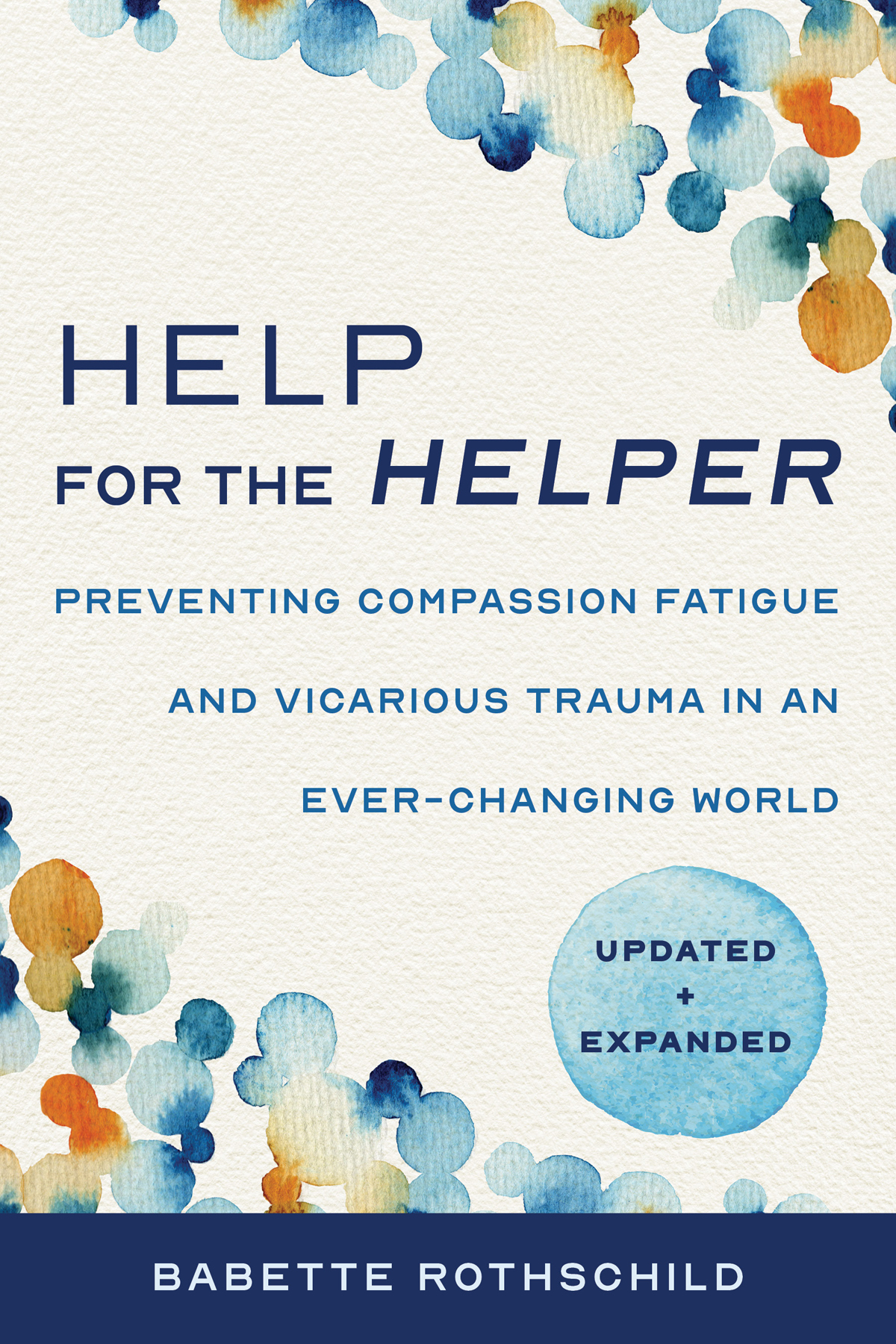Contents
Guide
Page List
HELP
FOR THE HELPER
PREVENTING COMPASSION FATIGUE
AND VICARIOUS TRAUMA IN AN
EVER-CHANGING WORLD
UPDATED + EXPANDED
BABETTE ROTHSCHILD

This e-book contains some places that ask the reader to fill in questions or comments. Please keep pen and paper handy as you read this e-book so that you can complete the exercises within.
This book is dedicated to all of you helpers, especially those of you on the front lines of crises around the world, who are raising up yourselves as well as your families, clients, communities, and countries.
Contents
Reflections on Added Material
Since the publication of the first edition of Help for the Helper in 2006, the world has changed. Significantly. Due to existing and growing threats of war, increasing areas of civil unrest, the COVID-19 pandemic, financial collapse, natural disasters, and more, therapists and other helping professionals now often find themselves in a particularly tricky position: They are struggling to personally cope with the same kind of traumas and massive stresses as the clients and others they serve. To address the unique challenges involved, added to the aims of the original version, the goals of this revised edition now also include further helping therapists to carry on helping their clients while also maintaining their own safety and sanity in crisis situations, as well as managing the usual stresses and challenges during normal times that the first edition focused on.
During the best of times, weI count myself among you). However, recently our challenges and obligations have multiplied exponentially as the world has become more and more chaotic. As if the usual did not offer up enough challenges and pressure, events of 2020 and beyond have added significantly to the weights on our shoulders. In the new normal that began in the spring of 2020, we all faced unprecedented additional challenges that have further complicated our lives and continue to do so.
Depending on your area of service, and the location where you serve, you might be able to look back longingly on the past where, even though you might have struggled from time to time, you often had the luxury of standing outside of the major issues that were impacting those whom you were helping. However, now it is more likely that you are reeling from many of the same events as the people you support. As a result, you have been hit hard with additional stresses, traumas, challenges, and burdens. It may even be the case that you are just as, or sometimes even more, rattled as the ones you are meant to, and want to, help.
It is important to note here that some of you reading this new edition have been experiencing extreme stress for many years or even decades while living and working in parts of the world where violence, poverty, war, systemic racism, and such have an unrelenting hold. For you, this idea of shared experience with clients will not be new in the way it is for readers for whom the 2020 pandemic was their first major community crisis. Nonetheless, your challenges and stress have also been increased and further complicated by the pandemic and other factors that have destabilized families, communities, and countries throughout the world.
Before I get much further into this book, as I indicated above, I want to acknowledge that I have also been affected by local, national, and world events. My own situation definitely gave me pause before I agreed to write this revision. In many ways, my dilemma is parallel to the one many of you have: How can I help you when I am similarly rattled? That challenges me in my personal and professional life, and on every page I write. Nonetheless, after much consideration, I realized that perhaps my own situation could further illuminate my point of view: To a large extent, I can relate to what you are dealing with from the inside. At the same time, I (like many, if not all, of you) also stand to benefit from being able to help others in these tough times (e.g., hopefully by writing this book)is that not why we become psychotherapists in the first place, because it rewards and nourishes us to be able to help others?
Though I have never thought of myself as an expert (experts are supposed to know everything, and I know very well that I do not), I do take pride in being a specialist in the theory and treatment of trauma and post-traumatic stress disorder (PTSD) as well as self-care for therapists and other helping professionals. I have published several well-regarded books on these topics (see under my name in the reference section). As such, I am often one of those looked to for advice in these times, just as your clients and others look to you. Similar to you, I need to figure out how to manage my own energy and emotions and establish balance so that my needs do not get completely lost in the mix while I am engaged in helping my colleagues, supervisees, and students. And, as I suspect you might relate to: I do not always find that particularly easy to do. So, when I speak of we as being impacted and challenged by world events, I am consciously and honestly intending to include myself.
Every one of us (both reading and writing this book) can be distressed in multiple ways. At the same time, we carry on because others look to us for support even when we may need support ourselves. We are also human. We are also vulnerable. And whether those we are helping are on the front lines (soldiers, first responders, medical personnel, organizers, and so on) or simply endeavoring to manage their daily lives, we all hope to be able to help without succumbing, ourselves, to extreme stress. I hope this revised edition will further assist you toward finding the balance necessary for you to maintain your physical, emotional, and mental equilibrium as you aid others to do the same.
Contact and Support
As always, good contact and support are major combatants against the effects of stress and the development of PTSD. I imagine (and hope) that most, if not all, of you are telling your clients and patients the same thing. However, this also applies to you. Contact and support are just as necessary for the helper as for the helped. And I am not talking only about your personal therapy and professional supervision here. You, just like everyone else in the world, also need time with your family and friends, even when some or much of that is (at some points in time) necessarily online. Throughout history, connection with others has been the main factor that has ensured survival of our species during times of strife and crisis. In fact, long before there were psychotherapists, social workers, or psychiatrists, reaching out and gathering in support of one another has been the primary way that humankind has conquered trauma and PTSD.
In that vein, certainly, you could read and make use of this book on your own. However, consider whether it might multiply its usefulness if you were to invite one or more colleagues to read and process this book together with you. That could serve as one of your, and their, steps toward self-care by increasing good contact with others. In addition, reaching out to colleagues would be a gesture of your support of thema win-win.
What Is Your Boat Like?
A few weeks into the COVID-19 pandemic, I read and heard multiple discussions online and through various media about our being all in the same boat. It is an apt metaphor for shared experiences during abnormal times, including societal upheaval such as war, hurricanes, earthquakes, pandemics, and other human-made or natural disasters. However, it is important to remember that although a situation might be global, each person, family, and community is rocked in their own way. Perhaps a more accurate analogy is that we are in different boats while traversing similar storms; for some a single storm, for others a rash of storms. For you it could be a Category 1, but for your neighbor a Category 4, and so on. While discussing this topic, my UK colleague, Michael Gavin, who is also an avid sailor, reminded me of something important: He said that when out in a storm, no matter how big or small, the most important thing for safety is to keep one hand on the tiller (in a small boat) or ships helm (in a large boat). That is, make sure to be in control of the steering mechanism. His point is apt for this metaphor: Each of us absolutely needs to keep control of the direction of our own boat throughout any and all storms. And that is the aim of this revision: to make sure you have the knowledge and tools you need to be able to steer your life, no matter how severe your storm.


